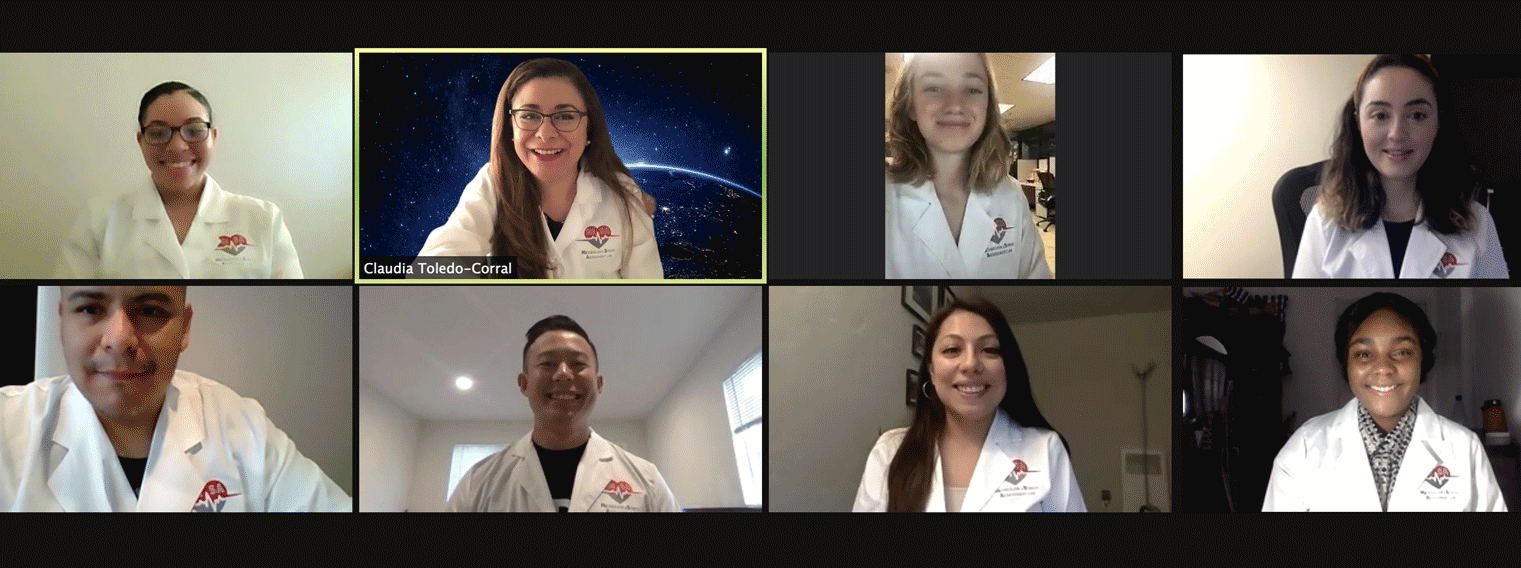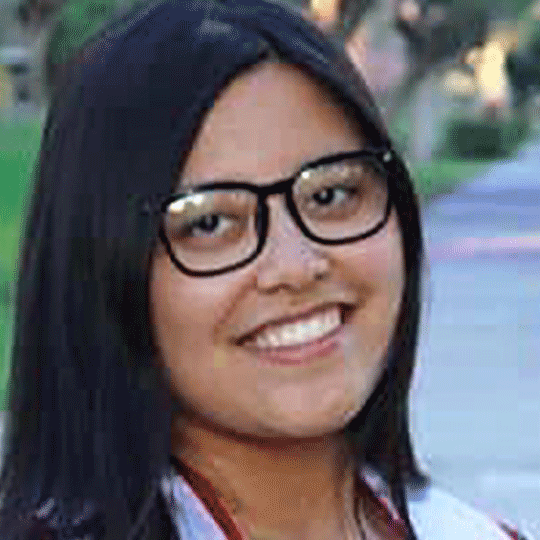May 18, 2021
HERE Center Researcher, Health Science Department’s Assistant Professor at CSUN, and an Adjunct Assistant Professor at the University of Southern California (USC)
The word “diabetes” was something Claudia Toledo-Corral always heard throughout her childhood. Her family and her neighbors always talked about it, and from there, her curiosity morphed into an academic interest.
“I always kept hearing about it, and thought ‘what is this diabetes thing?’ It’s something that never really left me,” Toledo-Corral said.
Currently, she is a faculty cluster hire at the Health Equity and Research Education (HERE) Center and an assistant professor in California State University, Northridge’s Department of Health Sciences.
One of her main research focal points is increased knowledge and awareness in type 2 diabetes, particularly in minority populations.
“There’s a lot of misunderstanding of what [diabetes] is, how the condition can be acquired, what some of the risk factors are, and what proper treatment is,” Toledo-Corral said. “In addition, in my community—the Latino community—there’s this conception that when you get really stressed out, it’ll provoke you to get type 2 diabetes.”
In particular, she became interested in how cultural beliefs and stress increase risk for type 2 diabetes. This led her to pursuing her bachelor’s degree in anthropology and psychobiology at the University of California, Los Angeles before receiving her master’s degree in biology and her doctorate degree in preventive medicine.
Aside from diabetes, one of her main research focal points is various risk factors early in the life course. She believes that if risk factors can be changed and identified earlier in life, disease can be prevented.
“What I focused on since I started my Ph.D. training [in preventive medicine] are the risk factors [early on],” Toledo-Corral said. “Instead of studying people when they’re already sick or when they’re adults and already have a [high risk], I study children, adolescents, and young adults.”
Diseases such as type 2 diabetes disproportionately affect nonwhite communities. Because she herself is a part of the Latino community, this motivated her to want to increase awareness with minority groups through education.
“I know a lot of community members are completely unaware of the [newer risk factors] like stress and the environment,” she said. “There’s just so many environmental issues [to consider]—I mean, there’s food availability, pollution and increased safety.”
One of Toledo-Corrals’ current studies, the DREAM study, looks at diabetes risk and obesity in minority youth, particularly with Hispanic and African American adolescents.
“We’re looking at psychosocial stress and [environmental factors], and how they could lead to type 2 diabetes risk,” she said.
Another study, Maternal and Developmental Risks from Environmental and Social Stressors, or MADRES, examines developmental risk in mothers associated with environmental stressors, specifically with lower-income predominantly Hispanic women in Los Angeles.
“As part of a larger group of people working together, [policy change] is an ultimate goal,” Toledo-Corral said. “My expertise is more on foundational research, so I need to connect with people who have more community outreach and field and policy development skills to translate what I’ve done [to] a larger level.”
Toledo-Corral hopes that in the future, more of her research with the other HERE Center collaborators will be more community-centered.
“Hopefully, in the near future, we [will] find more agencies that are willing to work with us, and [that we can] establish trust and a relationship with the community agencies,” she said.
Her experience and work as one of the HERE Center cluster faculty has given her the opportunity to do more critical research, develop her own lab—the Metabolism and Stress Assessment (MESA) Lab—and work with other researchers with varying fields of expertise.“At the HERE Center, I think what’s really fabulous is that we are inclusive of all [academic] backgrounds,” Toledo-Corral said.
According to Toledo-Corral, resources and money are usually given to the STEM field, which sometimes leaves health sciences and public health overlooked. She appreciates the HERE Center for accommodating different academic backgrounds in pursuit of making a change in the community.
“We’ve only been around a couple of years, but I think we could do great things,” she said. “I’m hoping we’ll do greater things in the future.”


